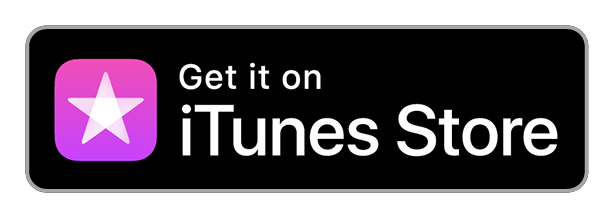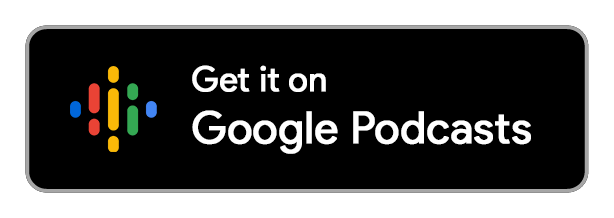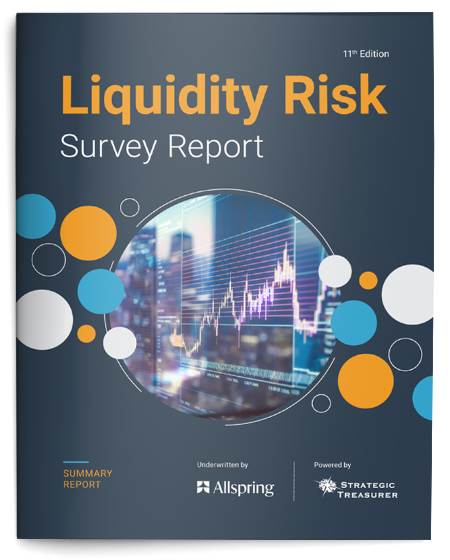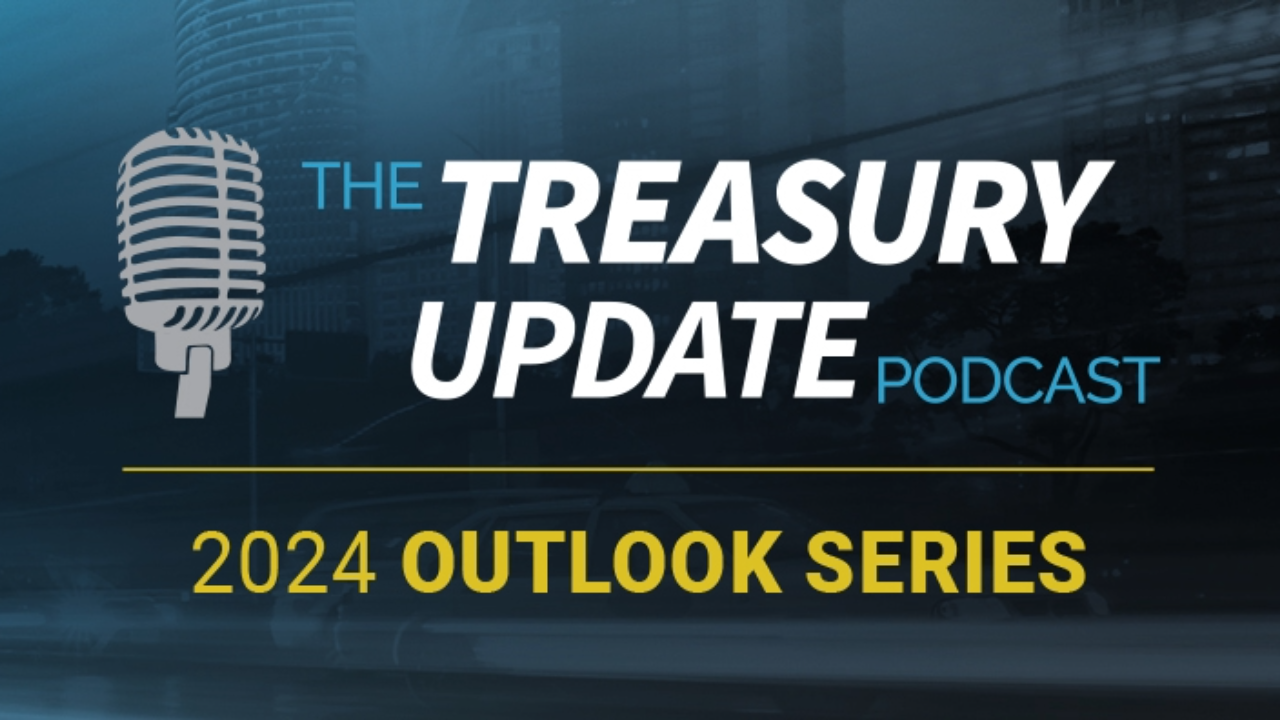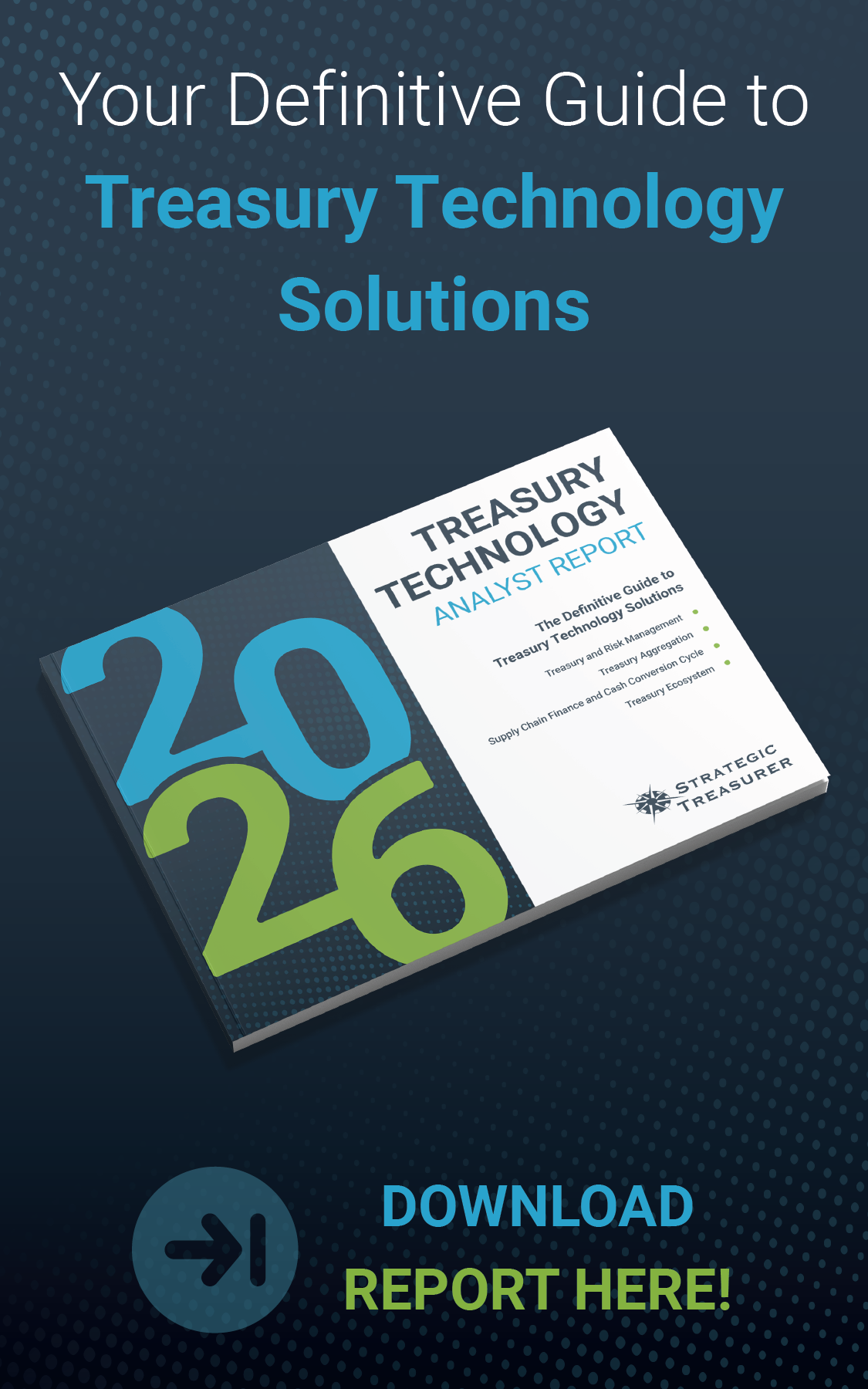
Episode 300
Treasury’s Value-Add Opportunities and What the CFO Wants – 2024 Outlook Series with Todd Yoder
In today’s episode of the 2024 Outlook Series, host Craig Jeffery is joined by Todd Yoder, EVP and CFO at S&B USA, to discuss treasury’s value-add opportunities and what CFOs want. Starting from an accounting background and progressing to his current CFO role, Todd Yoder shares insights he’s learned along the way about effective communication as a key value driver, as well as other ways treasurers can bring additional value to their organizations.
The 2024 Outlook Series features interviews with treasury experts about their expectations, projections, and insights for the year ahead. Find more 2024 Outlook Series episodes here.
Host:
Craig Jeffery,
Strategic Treasurer


Speaker:
Todd Yoder,
S&B USA
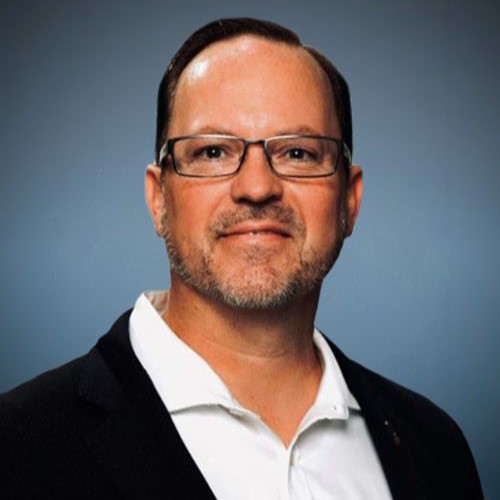

Episode Transcription - Episode #300 - Treasury’s Value-Add Opportunities and What the CFO Wants – 2024 Outlook Series with Todd Yoder
Announcer 00:04
Welcome to the Treasury Update podcast presented by Strategic Treasurer, your source for interesting treasury news, analysis, and insights in your car, at the gym, or wherever you decide to tune in.
Craig Jeffery 00:20
Hey, welcome to the Treasury Update Podcast. This is Craig Jeffery. Today’s episode is part of our Outlook Series. I’m back again with Todd Yoder as a guest. Todd, welcome to the Treasury Update Podcast.
Todd Yoder 00:32
Thank you, Craig. It’s great to be here again.
Craig Jeffery 00:35
You’ve been in a number of areas of corporate finance throughout your career, in different companies. You’ve done public company activities, accounting very senior levels in treasury, and now you’re CFO and executive vice president at SMB USA. Maybe you could just give us a quick overview of what your responsibilities are at SMB USA.
Todd Yoder 01:01
Kind of made the career full trip, so to speak. So starting in accounting and then banking, Treasury, FP, a, investor relations, risk, m&a, CFO, now at SMB, so I have a responsibility for all accounting consolidations, financial reporting, Treasury, tax. SMB, just for a little background, is so the company was founded in 1924 publicly traded SMB, USA, is headquartered in Pittsburgh, Pennsylvania. It’s a great city, great people, known for a lot of innovation, robotics and other great things, a lot of good things happening in the city. Just a little bit more about what it is, is construction concession. We have an EV business. So we own a family of companies, s, p is one of the world’s fastest growing infrastructure development company. So a leader in the P3 market. P3 is just public private partnerships. And so we do infrastructure services, project development, construction, even self perform construction, and then O and M, which is operate and maintain a lot of these assets following construction. A lot of subject matter experts. So it’s an exciting environment, very innovative and high achieving culture.
Craig Jeffery 02:21
Todd, as you’ve been in different roles, what are some of the things you either wish you knew, or if you want to offer some career advice or other information that would help treasury do a better job?
Todd Yoder 02:32
My advice is always to see as much as you can. You know, I had a very blessed career early to see so many different areas of corporate finance and work with a lot of different people, different roles, different countries, different cultures, be curious and get out and get as much of that technical as you can. Maybe even more important than that technical part is the leadership part of it, and leadership means different things to different people, but I always say it doesn’t take a title to be a leader, and a title doesn’t make you a leader, right? So leadership, you know, you’re just your ability to articulate thoughts, ideas, being an active listener. Know what you don’t know. We grow up in a positive feedback loop, right? So school, Craig, your hand shoots up. You have all the answers to the teacher’s questions. You answer the questions fastest, and so you equate that with smart people. Tell you how Craig, you’re so smart, you know? And it’s this, this feedback loop. As you develop in your career, emotional intelligence, business acumen, you realize the reality of it is, if you want to be a great leader, you’re not going to have all the answers. If you have all the answers, you’re not going to be a great leader. So smart, and what I call your secret weapon is, you know, having the business acumen and the emotional intelligence to be able to ask great questions. So instead of answering all the questions, you know, it’s just that ability to ask great questions that’s really important.
Craig Jeffery 04:19
The first thing you mentioned was the technical depth by being exposed to different areas. And the second is this, what is leadership? You know, the the asking the questions, how much of that is due to a desire to make sure people are thinking broadly, rightly or deeply about the area, and how much of that is because it’s just impossible to have the breadth and depth of understanding in all these areas.
Todd Yoder 04:44
You’re not going to have all the answers. So it’s really asking great questions really bring out. You know what each person brings their expertise. If you surround yourself with people that think just like you, you. And answer questions just like you would answer them, make decisions just like you would make them. You it’s a real tragedy.
Craig Jeffery 05:08
I’d like to poke at that a little bit. You know, the Socratic method of allowing people to self discover by asking questions. You know, that can come from helping to people think deeply about things, or making sure that things are being done logically. Do you balance that? Let’s say there’s a large project, or an acquisition or something where some of the big stones need to be laid out, or a structure needs to take place. That is, maybe there’s some self discovery about what are the key items that need to be done first, and then you work down to the detail level. How do you balance between when you’re asking questions, to get things done efficiently, to leverage the subject matter experts, and when is it more directive and structural to say, here’s some of the guidelines that we’re working within? We need to work within these containers, within this overall structure. And when might you involve them on the you know, if you’re coming up with what are those, the containers or the broader structure, how do you make a distinction between those two? Because asking the questions can be really slow at times.
Todd Yoder 06:13
That’s a very good point. It’s it’s not all questions and strategy and conceptual and development and ideation, that you do have that core right day to day. So there’s definitely a time for what you would consider kind of the core activities that have to happen. And there’s history, there’s the results, and then there is the future and analyzing, as they say, yesterday’s history. Tomorrow’s a mystery. Today is the present. That’s why we call it a gift, right? So some people, some people, you know, they’re wired. Every, every human is wired, different. Some, some like that, like you’re saying the core, the more descriptive, and some like more of the strategic part of finance.
Craig Jeffery 07:07
If this CFO and finance thing doesn’t continue to work out for you, you could always help Hallmark open up a business card section. That’s why they call it a gift, right? Yes, that that’s a couple things. This is completely off of what we said we were going to talk about. But I did want to get your thinking on this. We have, you know, some people are are very linear in their thinking. They take things in order. They move through thoughts and tasks methodically and orderly. You know, single, single, threaded, sequential, very effective at, you know, certain tasks, and then there’s others that are more of the global learners. They need to understand how things fit, like, what’s the purposes they have to answer the question of why? And I’m asking this because I want to ask how people can communicate better with the CFO.
Todd Yoder 07:59
So communicating with the CFO. My advice would be, do you want to think transactional or transformational? Putting together a report to ask yourself, I’m going to deliver this to a FP&A director or a VP, or what would their questions be? Is it actionable? So whoever my audience is going to be, is it something they can make a decision based on? Well, it’s nice to know, but so what? Is it easy to consume, because time is extremely expensive. Is it visual? Humans tend to be visual, quick and actionable. And then what’s the next question? So I deliver this, what would their next question be? I ask them, okay, well, if you were the CFO and you saw this report, what are some questions that you would have? And that tends to get the mindset from that transactional to more transformational. And really you you get a wide variety of answers, and before you know it, when people do deliver stuff to you, they have already thought about those next questions. I think it sounds very simple, but it’s a mindset that is is really powerful.
Craig Jeffery 09:19
So this is the anticipating the next question. Or, if you knew what the the treasurer, the CFO or the CEO, would ask next, why wait until they ask it? How about address that question first is that along the lines of what you’re saying, absolutely, that’s helpful. I want to, I want to put a little bit of a box around what we were just talking about, because I want to ask you another question, then bring that back to the front. Something that I observe, particularly with particularly with CFOs, is it seems like they often get to the point where their days are completely packed with meetings back to back. They might even be 15 minute meetings so many. People want a piece of them. But I wanted to ask that question, do you find that you have way more meetings, a significant number of conversations every day in this role, compared to, you know, being an executive in treasury?
Todd Yoder 10:13
You will go back to back on meetings, knowing the people and what their needs are in you know, they say Be here now so that active listening is is a critical part of being a good leader. So you need to be able to quickly shift as I move back to the CFO role for a larger business, I may go from meeting to meeting, but the topic right the department can change. So if I have a meeting with legal and then tax and then HR and then FP&A, you have to be able to quickly shift your mindset from topic to topic, knowing those leaders, knowing what their needs are, what’s important to them, is going to allow you to be effective.
Craig Jeffery 11:05
So this ability to switch, I don’t know if it’s called switch latency or just something to think about, right? You can only focus on one thing at a time. You know that’s just, that’s a reality of our minds. We may be able to switch more or less quickly between topics. Is the hack there? Then, if I could use the term, is to know your audience, what their what drives them so that you can hone in more quickly, is that part of it, is there something else there that helps you adjust, from tax, FP&A, treasury, you know, insurance, whatever?
Todd Yoder 11:39
I like to have outlined, you know, what’s the purpose? What outcome are we looking? Do we have the right people in the meeting? And when you have that, you don’t, because meetings are very expensive, right? If you have more people than you need, they can be less productive and even more expensive. What are the topics? Where did we leave off and prior discussions, what are some areas that that we need to follow up on, and what are some areas we need to make decisions on, and what’s the timing of that?
Craig Jeffery 12:11
As you think back, as you’ve been on this journey through your career, what are some things that you would do differently that would be actionable or understandable to to others?
Todd Yoder 12:24
You know, it’s all part of the journey of life, right? If you don’t experience, if everything is just perfect, right? Life, you know, is, is pretty boring. You go through your journey, and I would say, you enjoy the the ride. It’s, it’s not a destination, but I do wish that I understood every interaction with another human is an opportunity to leave a positive footprint, and then, like we talked about earlier, the reprogramming of smart does not mean you have all the answers, and you have them very quickly, because the reality of that is that’s very dangerous. So if you reprogram to smart is actually being an active listener and having the business acumen to the point where you have the ability to ask great questions.
Craig Jeffery 13:22
Yeah, so what makes a great question?
Todd Yoder 13:26
You can always tell if you if you’ve asked a great question, if you get a really fascinating answer, you ask a question and you get a typical or a exactly what you would have expected to hear. You haven’t earned that comfort and that trust with the people in that meeting. If you get an answer that you feel the passion you feel, creativity, you feel innovative thinking, they’re comfortable answering with ideas that are not what the group may expect, then, you know, you you’re asking great questions, and you’ve also built that trust. Oftentimes, you mention books or articles that I should read. You’re, you know, you’re one of a handful of people that I talk to that I usually come away with, like, here’s three more books to read, and I try not to talk to too many of those people in a single week, because it’s like I can’t read 10 books in a week. But I do want to ask that, what? What have you been reading? Any recommendations for good topics to cover good good materials? Yeah, I always have to mention my friend Nassim Taleb. If you work in finance, risk is so important understanding risk and the known unknowns and also the unknown unknowns. And I think that’s our ability to become great leaders, is being able to understand risk and what may occur before it occurs. I. Yes, but Harvard Business Review, John Hagel wrote an article, good leadership is about asking good questions. And then also, I think he’s Stanford. I’m not sure you look up Hal Gregerson, so H A L Gregerson. He has some very, very good stuff on business leadership and risk. So I would and ask asking good questions. I think if you search for him, you’ll find lots of great, great material.
Craig Jeffery 15:38
That sounds like the Todd Yoder trifecta of topics we discussed today. Well, thanks so much Todd for joining me on this episode of the Treasury Update Podcast.
Announcer 15:52
You’ve reached the end of another episode of the Treasury Update Podcast. Be sure to follow Strategic Treasurer on LinkedIn. Just search for Strategic Treasurer. This podcast is provided for informational purposes only, and statements made by Strategic Treasurer LLC on this podcast are not intended as legal, business, consulting, or tax advice. For more information, visit and bookmark StrategicTreasurer.com.
Subscribe to the Treasury Update Podcast on your favorite app!
Related Resources
The 2023 Liquidity Risk survey, presented with Allspring, polled treasury and finance practitioners on how they are evaluating current liquidity risk mitigation processes. We asked questions on macroeconomic changes and new regulations as they impact treasury. As one of our oldest running surveys, we are able to provide valuable year-over-year data that shows major and minor shifts in corporate risk mitigation strategies and predict future trends.


